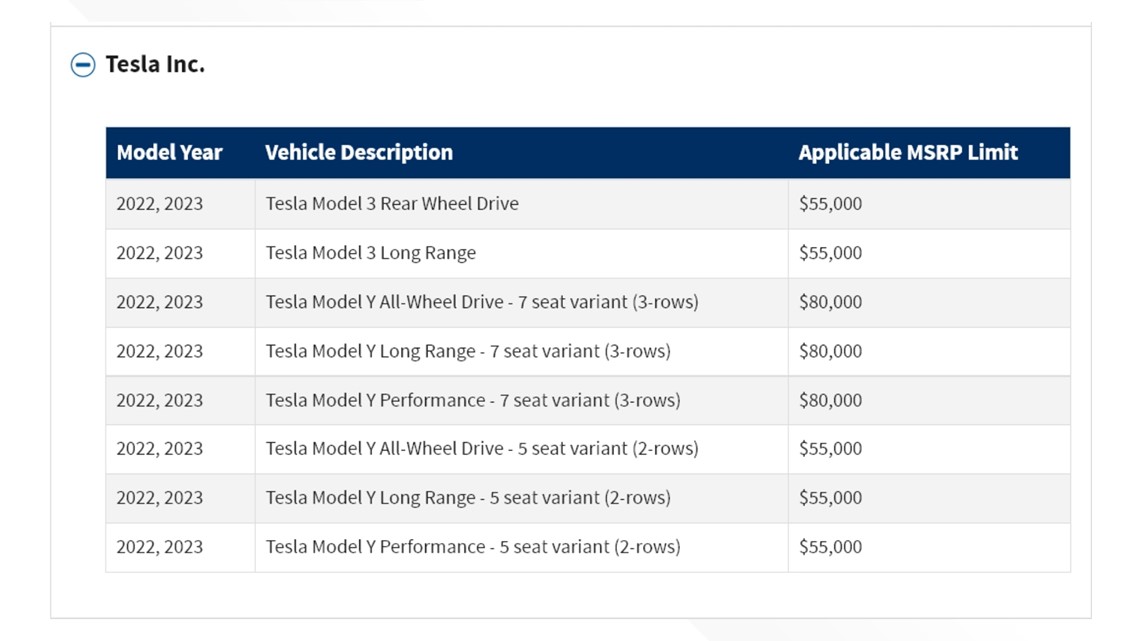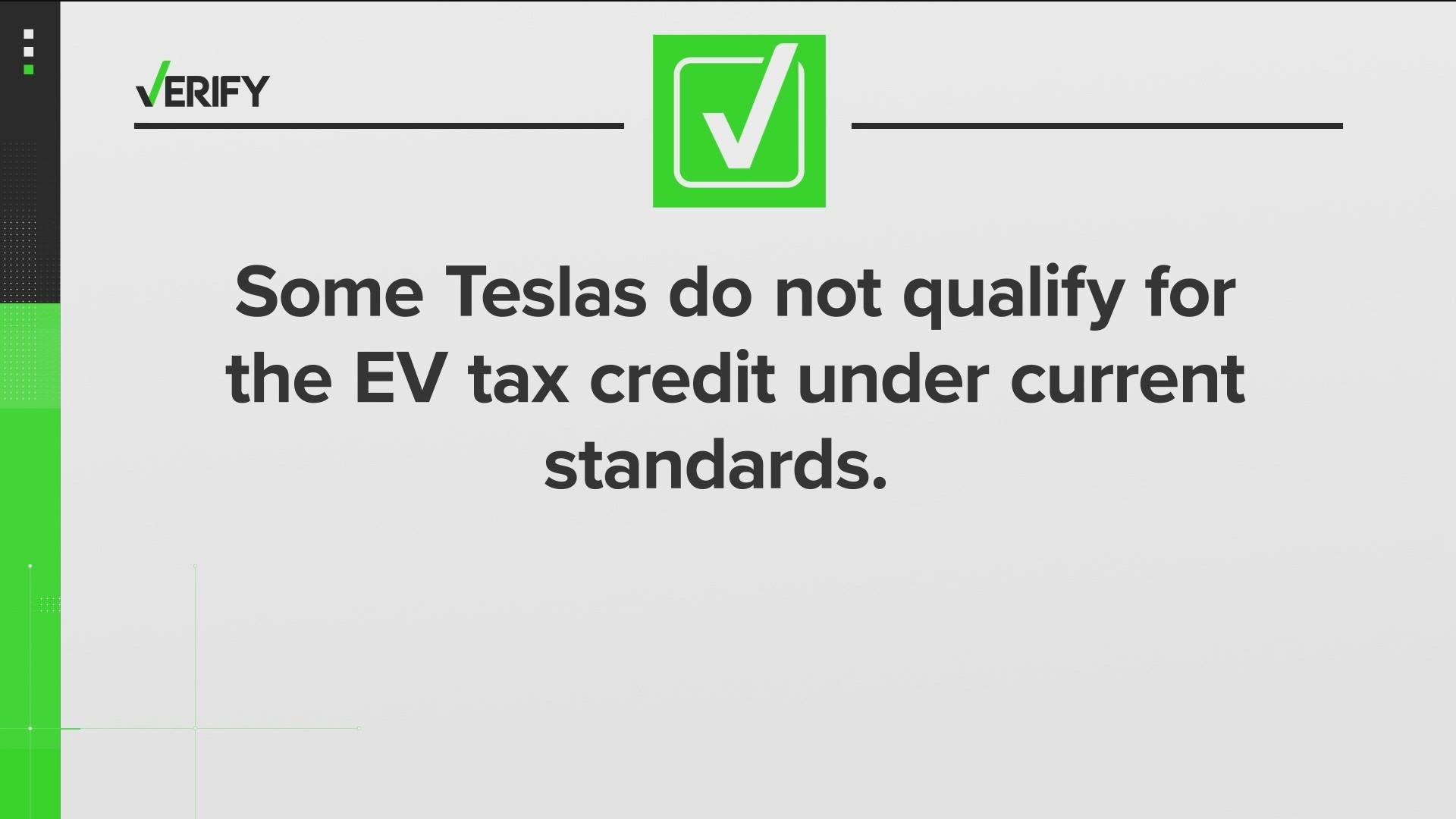AUSTIN, Texas — Those driving a plug-in electric vehicle (EV) or a fuel cell vehicle (FCV) may be eligible for a tax credit, but a recent tweet claims one Tesla model will not qualify.
The tweet was viewed by more than 10 million and was shared more than 3,000 times.
THE QUESTION
Are some Tesla vehicles excluded in the IRS EV Tax Credit?
THE SOURCES
- Colin Rowan, director of communications for Pecan Street Inc.
- Internal Revenue Service (IRS)
- Tesla
THE ANSWER
True, some Tesla models do not qualify for the tax credit based on price and vehicle classification.
WHAT WE FOUND
The IRS website shows a list of vehicles that may qualify for the clean vehicle tax credit, should certain standards be met.
The vehicle must have a final assembly in North America and must meet a certain manufacturer's suggested retail price (MSRP).
Vans, sport utility vehicles (SUVs) and pickup trucks must cost less than $80,000 MSRP. All other vehicles max out at $55,000 MSRP.
A dealership discount does not impact the standards set.
“With the IRA (Inflation Reduction Act of 2022) and more recent legislation, it's clear that the government's priorities have changed. They're not only trying to spur EV adoption, they're also trying to make rebates more equitable across all income brackets. They're also trying to use this as a vehicle to spur innovation for companies that are assembling their vehicles in the United States, and those last two categories are ones that were not really included in previous rebate programs,” Colin Rowan, director of communications with Pecan Street Inc., said.


The IRS website shows Tesla MSRP limits for the EV tax credit. Tesla’s Model Y falls into two categories with the IRS. The 7-seat variant is listed under the $80,000 MSRP limit. The 5-seat variant is classified under the $55,000 MSRP limit.
The standards for vehicle classification are listed under the Corporate Average Fuel Economy (CAFE) Standards, shown in 40 CFR 600.002 in the Code of Federal Regulations. Under these regulations, the Tesla Model Y is not classified under the existing Environmental Protection Agency (EPA) standards. However, because of the third-row model, it is described as an SUV for EPA's fuel economy labeling purposes reflected on FuelEconomy.gov.
Tesla’s website shows the 7-seat long-range Model Y retails for nearly $66,000 and the 5-seat performance model is nearly $70,000. The MSRP changes as features are added.
Based on these costs, the 7-seat variant may qualify for the credit whereas the 5-seat variant may not. A person will also need the vehicle’s Vehicle Identification Number (VIN) to verify the final assembly was in North America.
“If Tesla wants to reduce its price of a certain model to hit $55,000, then it will apply,” Rowan said.
Tesla is not the only manufacturer to have vehicles exempt from the tax credit.
Ford’s F-150 Lightning Pro may qualify, but the F-150 Lightning Platinum may not because its price is more than $80,000 MSRP.
“I would think that Tesla and its customers would be very excited about these new tax credits. Prior to these changes in previous years, Tesla owners were getting no rebate at all,” Rowan said.
Individuals must also meet the clean vehicle tax credit standards, which include income limits and use.

